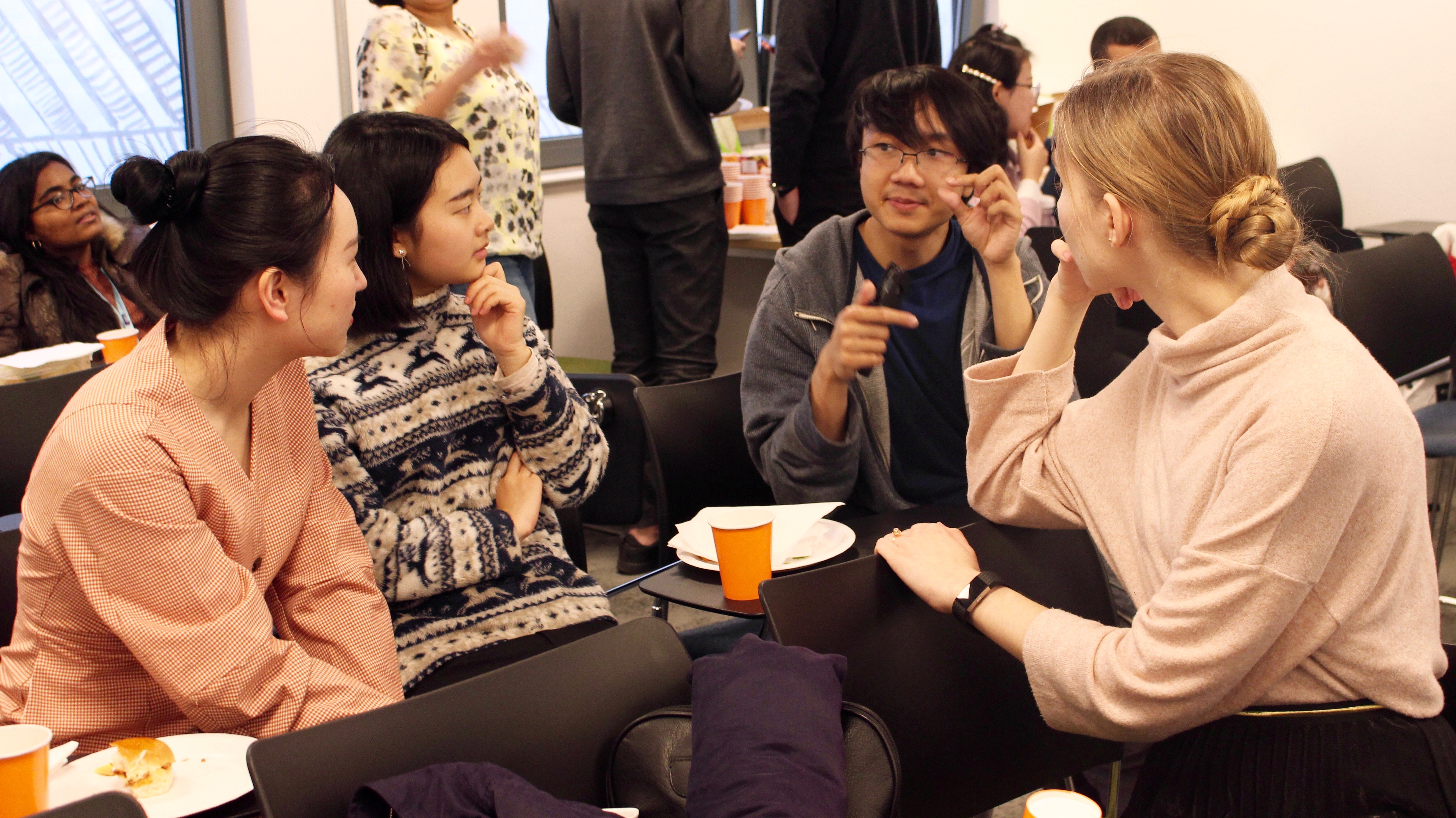What is Mental Health Awareness Week?
This week from 9-15 May is Mental Health Awareness Week, and the official theme is “loneliness.” We’ve all learned from the past few years just how devastating loneliness can be, particularly for our mental health. Living life remotely, attending online classes, and experiencing lockdown revealed just how valuable the time we spend with others truly is.

Now, between the returning hustle and bustle of regular life and the pressures of university, it’s easy to forget to prioritise our mental health. Mental Health Awareness Week is a fantastic reminder to reflect and (re)connect with our friends, families and communities.
How does volunteering fit in?
Volunteering can be a key ingredient in tackling loneliness and bettering mental health across multiple dimensions.

First, volunteering has an incredible impact on the mental health of volunteers themselves. Volunteering reduces stress, increases happiness and confidence, provides a sense of purpose, and of course, is a great way to make connections! It's no wonder that 87% of volunteers who completed our 2021 survey felt they’d helped improve other people’s health and wellbeing through their volunteering.
Opportunities like UK Kensington and Chelsea’s Lunch Club and Bingo and other through fun activities with older community members is a sure fire way to meet and bond with new people. You can even take your volunteering on holiday - yes, you read that right! With Sense, Holidays Volunteers join and support individuals with disabilities in a fun week-long holiday. Really, almost every volunteering opportunity involves connecting with other people - whether that is a fellow volunteer, a community member, a manager, or someone else entirely. Don’t believe us? Have a look for yourself with our Opportunity Finder!
Second, you can support others in their own mental health journeys with various volunteering opportunities.
For instance, befrienders play a crucial role in helping people through difficult and lonely times. Both Community Barnet and One Housing Group have great roles for anyone with a bit of time for a regular weekly commitment. There are also lots of opportunities for anyone that would like to work more directly with mental health. If that sounds like you, then you should consider volunteering as a Digital Helpline Volunteer for BEAT Eating Disorders. Mind in Camden is a mental health service provider, and they’re looking for volunteers interested in engaging their members in activities for healthy minds. To stay local to UCL, you might like to become an Ambassador Volunteer for London Nightline. In this role, you would be a direct liaison between a mental health charity and students at UCL. Alternatively, look broader with Paiwand and join their Mental Health project as an advocate.
What do our volunteers say?
Still not convinced about the link between mental health and volunteering? Just ask our other volunteers!
“Volunteering every week... really kept me sane throughout my studies and now in the world of work. It's really easy to forget that there is life outside of university and that London has more to offer than just campus and lectures! …[Volunteering] kept me grounded and reminded me what on earth I was doing this all for. The friendship and support I received... has really motivated me to continue spreading that support and cheer throughout my life as a doctor, both with my patients and my colleagues.”
“We all have so much going on in our lives, especially with the ongoing pandemic, university and personal life stresses. It is very easy to get wrapped up in our negative thinking and stress bubble. Taking time to volunteer has allowed me to step out of that bubble and be present…[Volunteering] makes you realise that there is much more to life than academia. I think I underestimated how much of my stress I could get rid of by putting a smile on other peoples’ faces. The feeling of knowing that I am bettering myself through bettering others is unmatched.”
“At university, we are in such a bubble... Volunteering helps you step out and realise there is more to the world. These interactions I have had during my time as a volunteer has changed my perspective of happiness. I realised that something was missing from my professional ambitions that were only motivated by social success. Having good grades, good internships and then a good job - that's probably not the key to making me happy!”
“The focal point of volunteering is the service itself. It lets you focus on something other than yourself. There are dual benefits- you give back to the community, and you are given the opportunity to grow. And let me tell you something- volunteering is the secret to building your confidence! Honestly, the benefits are immense.”
“...whenever I felt helpless because of a situation I found myself in, volunteering activities helped me gain perspective, stay focused on the positives, and not get dragged down by the negatives. I now realise that there is always something that you can do to make your - and others' - lives better”
Quick Links:
If you or someone you know require further support, please visit UCL’s Student Support and Wellbeing to see the wider support and resources available.
Find more information on mental health support from the NHS here.
Make sure to check out any upcoming wellbeing events.
Remember, you are not alone, and support is available.